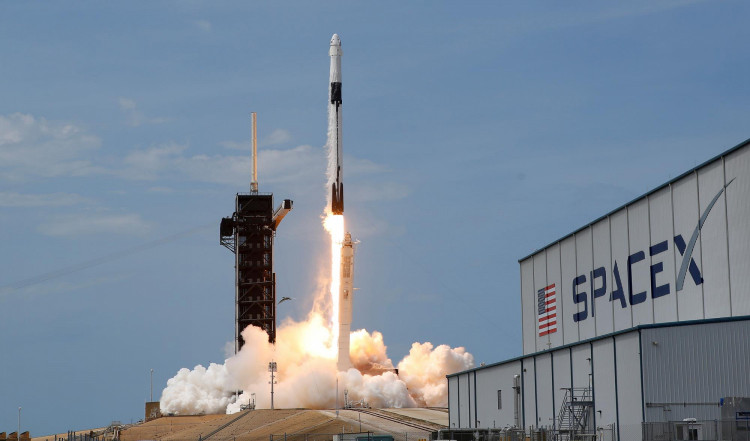Elon Musk's objective of transmitting fast internet speeds to isolated parts of our planet using advanced satellites has just come closer to becoming a reality.
A batch of 60 Starlink satellites has been deployed to low-Earth orbit by SpaceX on Tuesday, after two weeks of setbacks. The delivery was the space company's 13th batch, bringing the total number to over 700, Ars Technica said.
The 60 satellites deployed this week feature a sunshade mechanism called VisorSat designed to minimize their brightness. Chief executive officer Elon Musk said the number of satellites they have launched is enough to launch a public beta.
Musk noted that a "fairly wide public beta" would be carried out for households in the northern United States and southern Canada, as soon as the newly deployed satellites arrive at their designated orbital marks.
It may take a couple of months for the new satellites to hit their target positions, astrophysicist Jonathan McDowell of the Harvard-Smithsonian Center for Astrophysics said. McDowell added that SpaceX normally divides each batch of 60 satellites into three groups of 20, with the first group reaching its target height in around 45 days.
"Once all these satellites reach their target position, we'll be able to roll out a fairly wide public beta in the northern U.S. and hopefully southern Canada," Musk said in a Twitter post following blast-off, as reported by EarthSky.
Starlink's aim is to launch as many as 42,000 satellites into orbit that beam down high-speed broadband internet to remote areas where the signal is hard to come by.
Meanwhile, SpaceX has bagged a $149 million contract with the Space Development Agency to leverage the successes of its Starlink satellite system and establish custom constellations for the U.S. Department of Defense.
Despite the commitment to deliver high-speed broadband internet, SpaceX has been criticized within the astronomical circle for its high-tech program, due to the satellites' brightness and potential to interfere with observations of the night sky.






